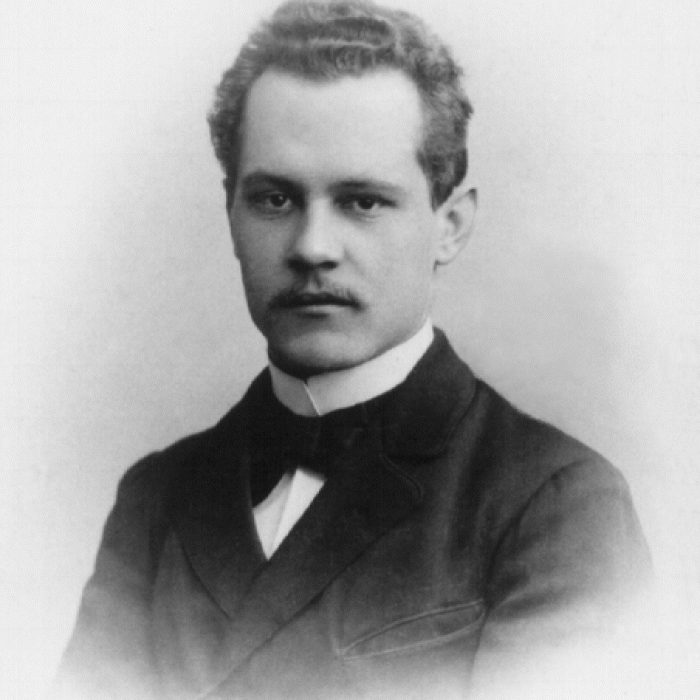
Arnold Johannes Wilhelm Sommerfeld (5 December 1868 – 26 April 1951) was a German theoretical physicist who pioneered developments in atomic and quantum physics.
He served as PhD supervisor for many Nobel Prize winners in physics and chemistry (only J. J. Thomson's record of mentorship is comparable to his).
He introduced the 2nd quantum number (azimuthal quantum number) and the 4th quantum number (spin quantum number). He also introduced the fine-structure constant and pioneered X-ray wave theory.
Sommerfeld studied mathematics and physical sciences at the Albertina University of his native city, Königsberg, East Prussia.
His dissertation advisor was the mathematician Ferdinand von Lindemann and he also benefited from classes with mathematicians Adolf Hurwitz and David Hilbert and physicist Emil Wiechert.
After receiving his doctorate, Sommerfeld remained at Königsberg to work on his teaching diploma. He passed the national exam in 1892 and then began a year of military service.
He completed his obligatory military service in September 1893, and for the next eight years continued voluntary eight-week military service.
In October, Sommerfeld went to the University of Göttingen, which was the center of mathematics in Germany.
From 1906 Sommerfeld established himself as ordinarius professor of physics and director of the new Theoretical Physics Institute at the University of Munich.
He was selected for these positions by Wilhelm Röntgen, Director of the Physics Institute at Munich, which was looked upon by Sommerfeld as being called to a "privileged sphere of action."
Over his 32 years of teaching at Munich, Sommerfeld taught general and specialized courses, as well as holding seminars and colloquia.
In 1918, Sommerfeld succeeded Einstein as chair of the Deutsche Physikalische Gesellschaft (DPG). One of his accomplishments was the founding of a new journal.
In 1927 Sommerfeld applied Fermi–Dirac statistics to the Drude model of electrons in metals – a model put forth by Paul Drude.
The new theory solved many of the problems predicting thermal properties the original model had and became known as the Drude–Sommerfeld model.
In 1928/1929, Sommerfeld traveled around the world with major stops in India, China, Japan, and the United States.
Sommerfeld was a great theoretician, and besides his invaluable contributions to the quantum theory, he worked in other fields of physics, such as the classical theory of electromagnetism.
On 1 April 1935 Sommerfeld achieved emeritus status, however, he stayed on as his own temporary replacement during the selection process for his successor, which took until 1 December 1939.
Sommerfeld was awarded many honors in his lifetime, such as the Lorentz Medal, the Max-Planck Medal, the Oersted Medal, election to the Royal Society of London, the United States National Academy of Sciences, Academy of Sciences of the USSR, the Indian Academy of Sciences.
In 2004, the center for theoretical physics at the University of Munich was named after him.
Sommerfeld died in 1951 in Munich from injuries after a traffic accident while walking with his grandchildren.
Source: Link

1564 - 1616

1803 – 1882

1854 – 1900

1942 – 2016

1928 – 2014

1835 – 1910

1869 – 1948

1884 – 1962
1898 – 1963

1929 – 1993

1879 – 1955

1809 – 1865

1807 – 1870

1800 – 1859

1795 – 1821

1755 – 1793

1984 -

1989 – 2011

1943 – 2001

1815 – 1902

1929 – 1994

1767 – 1848
